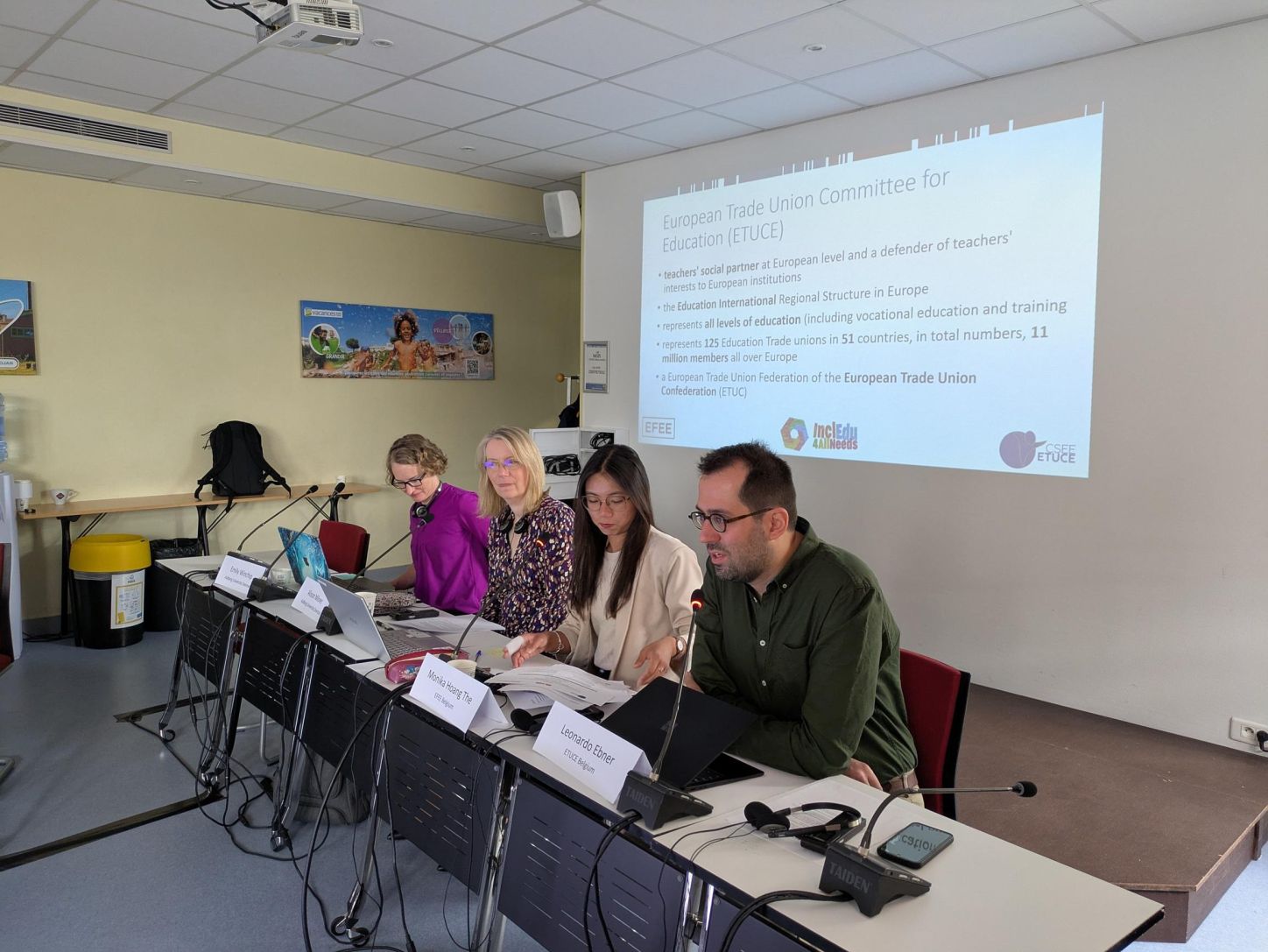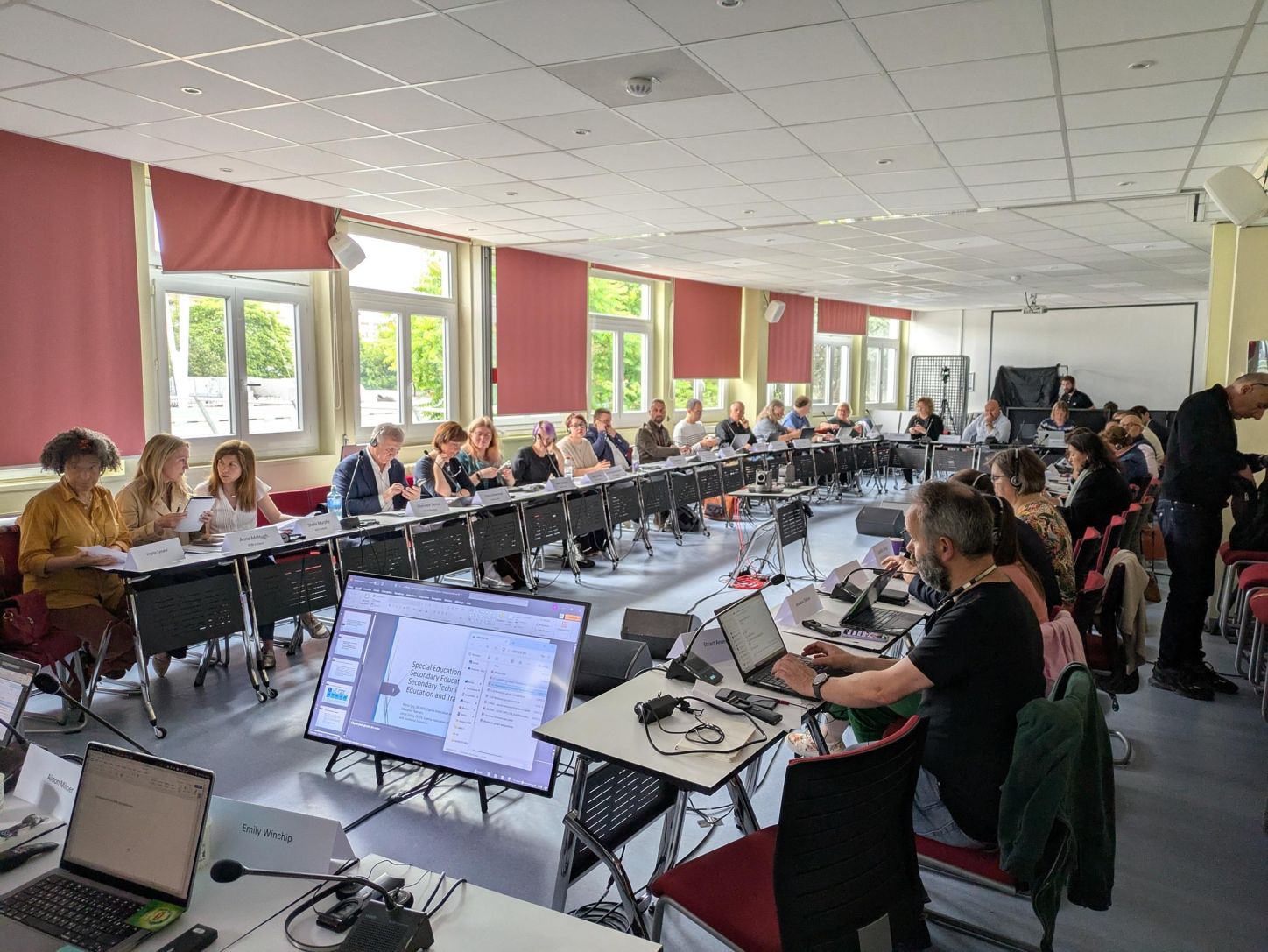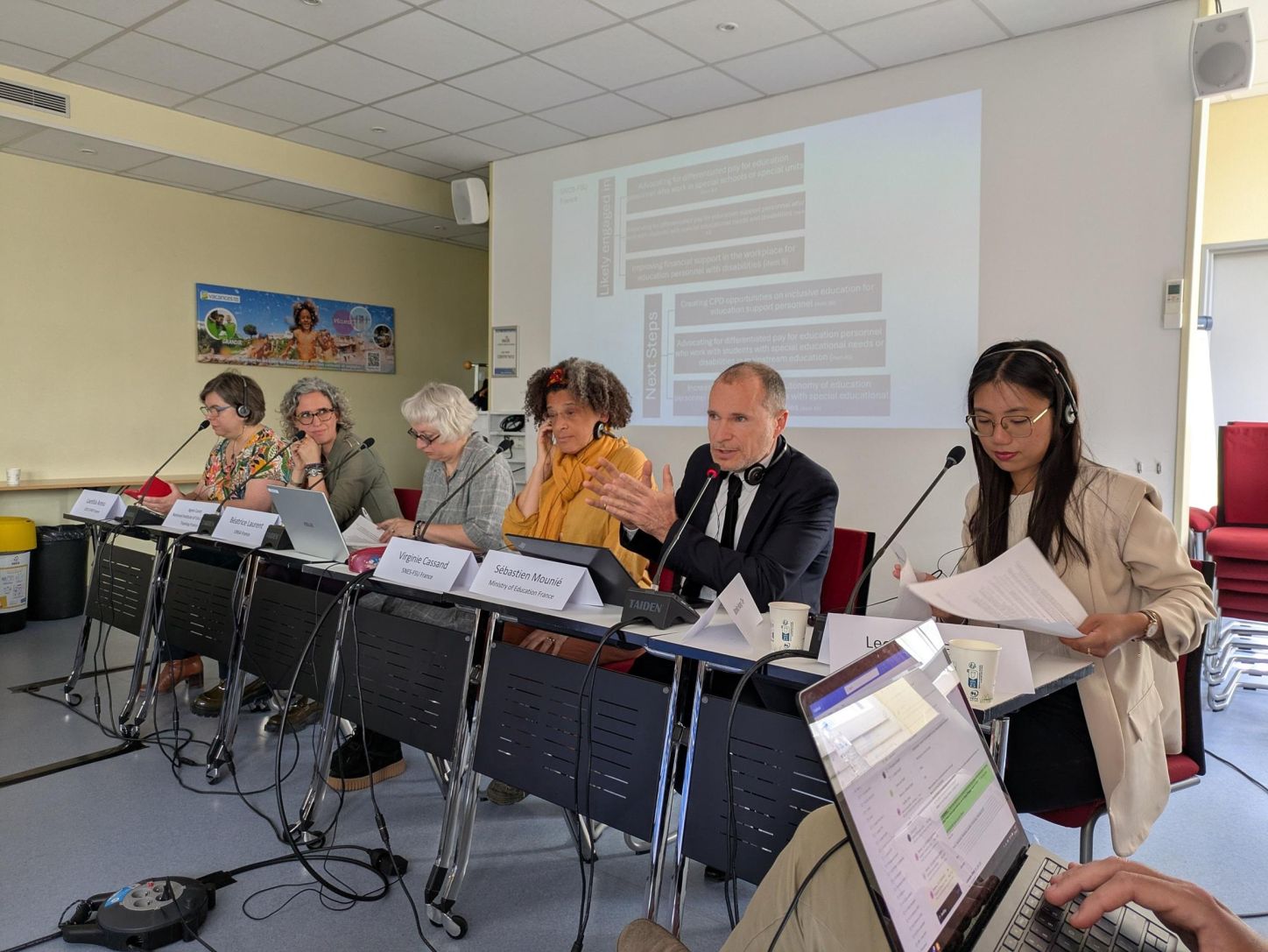
Training Seminar Paris: ETUCE and EFEE Empower Social Dialogue for Inclusive Education at Paris Seminar
In a joint effort to strengthen inclusive education systems across Europe, ETUCE and EFEE held a successful training seminar on 22–23 May 2025 in Paris as part of the EU-funded project “InclEdu4AllNeeds – European Sectoral Social Partners in Education promoting inclusion of persons with special needs in education”.
Gathering trade unionists, education employers, researchers, and policy experts, the event served as a platform for European education social partners to exchange good practices, identify common challenges, and build joint strategies to improve the inclusion of students with special needs in schools.
Opening the seminar, ETUCE Coordinator Leonardo Ebner and EFEE Coordinator Monika Hoang The underlined the crucial role of social dialogue in shaping equitable and high-quality education systems. They stressed that inclusive education is not only a right for every learner but also a shared responsibility requiring coordinated action at all levels.

Participants engaged with the findings of the project’s research phase, presented by Alison Milner and Emily Winchip from Aalborg University. Their data, collected through school visits in Germany and Romania and a cross-European survey, highlighted gaps in support structures, teacher training, and policy implementation. They called for harmonised approaches that centre equity and cooperation among all actors, including socio-medical services.
A key highlight was the focus on inclusive education in France. Representatives from French education trade unions (SNES-FSU, UNSA-Education, CFDT EFRP), the Ministry of Education, and the National Education Mediator discussed recent reforms and persisting challenges. While the creation of “school support centres” (pôles d’appui à la scolarité) has improved intersectoral collaboration, participants noted that stigma, lack of specialised personnel, and excessive workloads for reference teachers continue to undermine inclusive efforts.

Group discussions explored concrete actions to be taken through joint social partner initiatives. Participants emphasised the urgent need to:
- Improve initial and continuous training for all teachers and school leaders;
- Address shortages in specialised education staff;
- Create inclusive learning environments and curricula;
- Enhance collaboration with socio-medical services;
- Promote inclusive recruitment and retention of teachers with disabilities.
Social partners from Belgium, Ireland, and Cyprus showcased inspiring joint initiatives that are moving away from segregated education systems and toward inclusive models. These case studies demonstrated the impact of coordinated advocacy, inclusive leadership, and mutual trust.
“Across Europe, financial constraints and fragmented policymaking remain major barriers to inclusion,” said participants during the plenary session. “But social dialogue remains a powerful tool to drive change – if it is prioritised and meaningfully implemented.”

Closing the seminar, both ETUCE and EFEE reaffirmed their shared commitment to inclusive education and to turning the lessons learned into concrete policy tools. The outcomes of the seminar will feed into the development of practical guidelines and support further dialogue at national and European levels.
This training seminar is part of a broader series of activities in the InclEdu4AllNeeds project, which continues with a second seminar in Lisbon and a final conference in Chisinau. Together, these events aim to equip education social partners with the knowledge and capacity to ensure that every learner, regardless of ability, has access to inclusive, supportive, and high-quality education.





